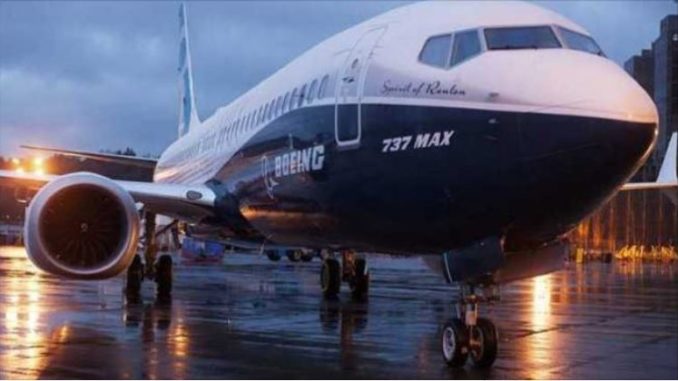
(CNN)The day after Ethiopia’s minister of transportation released a preliminary crash report on Ethiopian Airlines flight 302, four Boeing employees called an Federal Aviation Administration whistleblower hotline that allows employees and the public to report aviation safety issues.
A source familiar with the matter says the hotline submissions involve current and former Boeing employees describing issues related to the angle of attack sensor — a vane that measures the plane’s angle in the air — and the anti-stall system called MCAS, which is unique to Boeing’s newest plane.
All of the 737 Max planes worldwide have been grounded.
The FAA tells CNN it received the four hotline submissions on April 5, and it may be opening up an entirely new investigative angle into what went wrong in the crashes of two Boeing 737 Max commercial airliners — Lion Air flight 620 in October and Ethiopian Air flight 302 in March.
Among the complaints is a previously unreported issue involving damage to the wiring of the angle of attack sensor by a foreign object, according to the source.
Boeing has reportedly had previous issues with foreign object debris in its manufacturing process; The New York Times reported metal shavings were found near wiring of Boeing 787 Dreamliner planes, and the Air Force stopped deliveries of the Boeing KC-46 tanker after foreign object debris was found in some of the planes coming off the production line.
Other reports by the whistleblowers involve concerns about the MCAS control cut-out switches, which disengage the MCAS software, according to the source.
A preliminary report by Ethiopian investigators found that a malfunctioning angle of attack sensor on Ethiopian Airlines flight 302 was sending incorrect data to the MCAS system. The MCAS, behaving as if it were in a stall, repeatedly forced the nose of the plane down as the pilots struggled for control, and ultimately the aircraft crashed.
The problems on board the Ethiopian Airlines jet appear to be similar to those encountered on the Lion Air flight that crashed in October. Between the two crashes, 346 people were killed.
Boeing’s CEO has acknowledged the role of the erroneous angle of attack sensor information triggering the MCAS system in the two crashes, calling it one link in a “chain of events” that caused the crashes.
MCAS is triggered by a single angle of attack sensor, and critics have questioned why Boeing would design the plane without a redundancy, and why the FAA approved the system.
In a statement, the FAA defended its certification process.
“Safety is FAA’s top priority, and we have a longstanding well-established aircraft certification process that has consistently produced safe aircraft,” the FAA statement to CNN said. “When certifying an aircraft, we do not consider a single factor in isolation. Rather, we look at the interaction of all elements and systems, in addition to human and other external factors.
“The single angle of attack sensor was considered in relation to a variety of other factors, specifically well-known pilot procedures that would mitigate the effects of a failure. MCAS design, certification tests, and cockpit procedures were evaluated using a standard industry approach to failure analysis.”
Boeing did not immediately respond to a request for comment on the whistleblower reports.
The airline’s CEO will hold a news conference on Monday following a shareholder meeting in Chicago. A meeting of international civil aviation authorities is also taking place Monday in the Dallas area to discuss the issues surrounding the 737 Max.
END

Be the first to comment